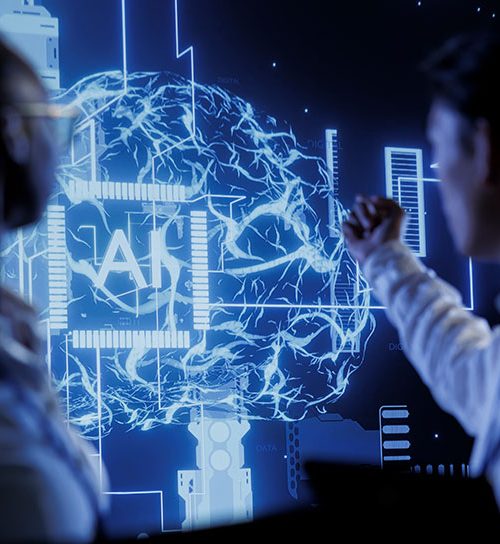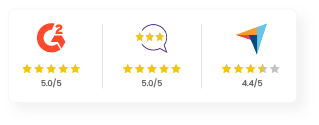The Future of Corporate Training: Unlocking Potential with Personalized Learning

The era of one-size-fits-all corporate training is truly behind us. In the last few years, it has given way to a transformative shift: that of personalized learning.
Just as the consumers of today gravitate toward fitness apps and curated entertainment that is specifically tailored to their preferences, modern employees too demand training experiences that resonate with their unique goals, roles and learning styles. They are too busy to consume generic learning content that does little for their personal needs.
This evolution in learning and development initiatives reflects the growing realization that generic training programs are no longer enough in a fast-changing work environment.
The Shift to Personalized Learning: An Overview
At its core, personalized learning is about empowering employees through customized learning pathways. By catering to individual needs, abilities, and objectives, this approach boosts engagement and enhances learning efficiency.
In contrast to traditional methods, where every employee receives the same instruction in the same format, personalized learning focuses on relevance and adaptability—qualities that are super essential in the modern workplace that is shaped by hybrid work models and the imperative for continuous learning. Advances in AI in corporate learning further accelerate this shift, enabling organizations to analyze data, predict learner needs, and deliver content tailored to each employee.
All in all, personalized learning is not just a trend now. It is a calculated response to the evolving demands of modern workplaces and it works wonders in unlocking employee potential and aligning workforce development with organizational goals.
Why Personalized Learning is Gaining Popularity
There are several reasons why there has been a radical shift towards personalized learning.
More and more employees, especially the Gen Z cohorts today, look for organizations that prioritize their skill growth and career progression. In fact, as per a LinkedIn report, 76% of Gen Z learners see learning as essential to building a successful career.
However, multiday training sessions filled with generic content that ends up forgotten on a shelf offer little value to them. They rather crave learning experiences that are tailored and relevant. Similarly, organizations too demand a solid return on their corporate training investments. Personalized learning bridges this gap effectively and creates a win-win for both individuals and businesses.
Besides, in a constantly changing workplace, the need for rapid skill acquisition has never been greater. Technologies such as Artificial Intelligence (AI) in corporate learning make it possible to adapt training dynamically by delivering content that aligns with each learner’s goals and learning preferences.
The benefits of personalized learning extend beyond individual employees. For organizations, it translates into improving employee engagement through L&D, as learners feel more connected to their development journeys. Faster skill acquisition and the ability to respond to evolving business needs enhance organizational agility.
Plus, personalized learning enables L&D strategies to focus on measurable results, in turn, ensuring a clear Learning and Development ROI. By aligning training with business goals and leveraging data-driven insights, organizations can bring out the full potential of their workforce.
The Role of Platforms in Supporting Personalized Learning
The emergence of learn tech like Learning Experience Platforms (LXP) has revolutionized the delivery of personalized learning.
Also Read: How LXP is Revolutionizing Employee Training
An AI-driven LXP leverages user data—preferences, past performance, and learning objectives—to create personalized learning paths. This enables tailored recommendations for courses, modules, and resources aligned with each learner’s specific needs and aspirations. The result? Greater engagement and relevance which leads to more effective learning outcomes.
Moreover, navigating the overwhelming sea of online information can be challenging for learners, but AI-powered LXP solves this by offering intelligent content recommendations. By analyzing user behavior, preferences, and performance data, it filters through an extensive content library to suggest the most relevant and high-quality resources. This not only saves time but ensures learners access accurate, up-to-date information resulting in an enriched overall learning experience.
An LXP also provides AI-driven adaptive learning paths, offering customized content recommendations that align with individual learner objectives. Employees gain 24/7 access to relevant learning resources which enables them to learn at their own pace and convenience.
Plus, key LXP features such as gamification and social learning tools encourages employee engagement, making the learning experience much more enjoyable and collaborative. An LXP also includes analytics to track progress which ensures that both learners and organizations can measure the effectiveness of training initiatives. This approach is integral to more pointed learning and development initiatives, as it combines flexibility with data-driven precision.
Measuring the Impact of Personalized Learning
Consider a scenario where your L&D team has delivered the right kind of customized learning as per the needs and preferences of your employees. But how do you know if these personalized learning programs are hitting the mark?
It all comes down to tracking the right L&D metrics. For instance, measuring things like how quickly employees are picking up new skills and advancing in their roles can give you a clear picture of progress. Similarly, monitoring engagement and satisfaction metrics can show how much learners actually value the training experience.
More importantly, the real win lies in linking L&D efforts to real business results. Think better productivity, stronger retention rates, and teams performing at their best—all thanks to tailored training programs.
That’s where LXP plays a key role with detailed analytics that track progress and prove the ROI of your Learning and Development initiatives. These insights help you tweak and improve strategies so there’s enough synergy and sync with what employees need and what the business wants to achieve.
How to Implement Personalized Learning in Your Organization
Implementing personalized learning requires a systematic approach. Here are some steps you can take:
- Assess employee learning preferences and organizational goals. Begin by understanding what employees need and how these needs align with broader business objectives.
- Select an LXP or corporate training platform. Choose a platform that supports AI-driven tools and offers features like adaptive learning paths, gamification, and analytics.
- Build a culture of learning. Encourage participation through incentives and strong leadership support, in turn, creating an environment that values continuous development.
- Leverage AI tools. Use AI to design adaptive learning experiences that scale with your organization’s growth.
- Measure and refine. Continuously track progress using L&D metrics and adjust programs based on feedback and data insights.
By following these steps, organizations can embed personalized learning into their strategic learning and development initiatives, ensuring sustainable success.
Final Words: Why Personalized Learning is the Future of L&D
Personalized learning is changing the corporate training game by offering benefits that traditional methods cannot match. By customizing development paths to fit individual needs, organizations can boost engagement, speed up skill acquisition, and become more agile.
The integration of AI in corporate learning and the use of training platforms like LXP are critical to this evolution as they enable data-driven, scalable and impactful learning experiences. Implementing an LXP can bring many benefits to enhance modern employee learning experiences, thanks to its innovative and customizable features that cater to a variety of training needs.
As workplace trends continue to evolve, personalized learning is a must-have investment for every organization, regardless of size and nature. By embedding it into their strategic learning and development initiatives, organizations can drive both employee satisfaction and business success.











